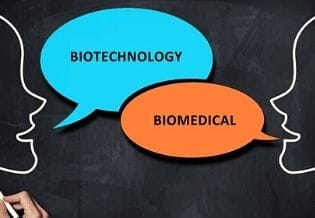These are our primary focus areas. Submissions in these domains are handled by subject-expert editors and follow our standard single-blind peer-review process (double-blind available on request).
Genomics & Gene Regulation
- CRISPR systems and genome editing technologies
- Transcriptional regulation and epigenetic mechanisms
- Single-cell genomics and spatial transcriptomics
- Non-coding RNA biology and regulatory networks
- Chromatin architecture and 3D genome organization
Proteomics & Protein Engineering
- Quantitative proteomics and phosphoproteomics
- Protein structure prediction and computational design
- Post-translational modifications and signaling cascades
- Protein-protein interactions and complex assembly
- Enzyme engineering and directed evolution
Cellular Pathways & Signaling
- Signal transduction mechanisms and pathway crosstalk
- Cell cycle regulation and checkpoint control
- Apoptosis, autophagy, and programmed cell death
- Metabolic pathway engineering and flux analysis
- Cellular stress responses and homeostasis
Omics Integration & Systems Biology
- Multi-omics data integration and network analysis
- Metabolomics and lipidomics profiling
- Systems-level modeling of biological processes
- Computational prediction of gene function
- Machine learning applications in molecular biology
We also welcome cross-disciplinary and methodological work that complements our core domains; these submissions follow the same rigorous editorial and peer-review procedures.
Synthetic Biology & Bioengineering
- Synthetic gene circuits and genetic switches
- Metabolic pathway engineering for bioproduction
- Cell-free protein synthesis systems
- Biosensor development and optimization
Structural Biology & Biophysics
- Protein structure determination (X-ray, cryo-EM, NMR)
- Molecular dynamics simulations
- Protein folding and aggregation mechanisms
- Biomolecular interactions and binding kinetics
Microbial & Environmental Biotechnology
- Microbial genetics and strain engineering
- Metagenomics and microbiome analysis
- Bioremediation and environmental applications
- Industrial fermentation optimization
Molecular Diagnostics & Biosensors
- Nucleic acid detection technologies
- Protein biomarker discovery and validation
- Lab-on-chip and microfluidic platforms
- CRISPR-based diagnostic tools
New frontiers at the intersection of molecular biology and emerging technologies. These submissions may require additional editorial review to ensure scope alignment.
- ➤ AI-driven protein design: Machine learning models predicting protein structure-function relationships and de novo protein engineering
- ➤ Single-molecule technologies: Real-time observation of molecular processes using advanced microscopy and nanopore sequencing
- ➤ Organoid systems: 3D cellular models for studying development and disease at the molecular level
- ➤ Quantum biology: Quantum effects in biological systems including photosynthesis and enzyme catalysis
- ➤ RNA therapeutics: Molecular mechanisms of mRNA, siRNA, and antisense oligonucleotide technologies
Editorial Note: Emerging area submissions must clearly demonstrate molecular-level insights. Purely technological or clinical applications without mechanistic depth fall outside our scope.
The following topics are NOT considered for publication in JBBS. Submissions in these areas will be desk-rejected without peer review.
- Clinical Trials & Patient Outcomes Studies focused on treatment efficacy, patient survival, or clinical endpoints without molecular mechanistic insights. Rationale: These belong in clinical medicine journals.
- Medical Device Development Engineering of diagnostic or therapeutic devices without fundamental molecular biology research. Rationale: Scope limited to molecular mechanisms, not device engineering.
- Epidemiological Studies Population-level disease patterns, risk factors, or public health interventions. Rationale: Lacks molecular-level focus required for JBBS.
- Pharmacokinetics & Drug Metabolism ADME studies, drug dosing, or pharmacological effects without molecular target investigation. Rationale: Clinical pharmacology outside molecular biology scope.
- Surgical Techniques & Procedures Operative methods, surgical outcomes, or procedural innovations. Rationale: No molecular biology component.
Boundary guidance: JBBS welcomes translational and clinical studies when they incorporate biotechnology or biomedical methods (e.g., omics profiling, biomarker assays, diagnostic/device validation, biomaterials, bioengineering, or computational pipelines) and report objective, reproducible evidence.
Original Research
Full-length studies presenting novel molecular mechanisms, pathway discoveries, or technological innovations. Typical length: 4,000-8,000 words. Requires comprehensive methods, statistical validation, and data availability statements.
Systematic Reviews
Comprehensive syntheses of molecular biology topics following PRISMA guidelines. Must include meta-analysis or quantitative synthesis where appropriate. Pre-registration encouraged.
Methods & Protocols
Novel experimental techniques, computational pipelines, or analytical frameworks with validation data. Must demonstrate improvement over existing methods and provide reproducible protocols.
Short Communications
Brief reports of significant findings or preliminary data warranting rapid dissemination. Maximum 2,500 words. Ideal for proof-of-concept studies or unexpected discoveries.
Data Notes
Descriptions of high-quality datasets (genomic, proteomic, metabolomic) deposited in public repositories. Must include data validation and potential reuse applications.
Perspectives
Forward-looking analyses of emerging trends, technological frontiers, or paradigm shifts in molecular biology. Invited or proposed to editors. Maximum 3,000 words.
Opinion Pieces
Rarely considered. Must address controversial topics or methodological debates with substantial molecular biology expertise. Invitation-only or pre-approved by editors.
Reporting Excellence: JBBS requires adherence to community standards for transparency and reproducibility. All submissions must follow appropriate reporting guidelines and include completed checklists as supplementary files.
Data Policy
- Omics data: Deposit in GEO, SRA, ArrayExpress, PRIDE, or MetaboLights with accession numbers cited in manuscript
- Structural data: Deposit in PDB, EMDB, or BMRB prior to publication
- Code & algorithms: Share via GitHub, Zenodo, or institutional repositories with DOI
- Reagents: Deposit plasmids in Addgene, cell lines in ATCC, or provide material transfer agreements
Ethics Requirements
- Institutional review board (IRB) or ethics committee approval for human samples/data
- Institutional Animal Care and Use Committee (IACUC) approval for animal studies
- Informed consent documentation for human participants
- Biosafety and biosecurity considerations for dual-use research
Preprint Policy
JBBS welcomes submissions previously posted on preprint servers (bioRxiv, medRxiv, arXiv). Authors must disclose preprint DOI and update preprint with publication details upon acceptance. Preprint posting does not affect consideration or novelty assessment.
Ready to Submit Your Research?
Join a global community of molecular biologists advancing fundamental understanding of life at the molecular level. JBBS offers rigorous peer review, rapid publication, and maximum visibility for your discoveries.
Pre-Submission Checklist
- Manuscript addresses molecular mechanisms, cellular pathways, or fundamental biological processes
- Study design includes appropriate controls, replicates, and statistical analyses
- Methods section provides sufficient detail for reproducibility
- Data deposited in public repositories with accession numbers (where applicable)
- Ethics approvals obtained and documented in manuscript
- Reporting guidelines followed with completed checklists included
- Conflict of interest and funding statements provided
- Author contributions clearly defined using CRediT taxonomy
- References formatted according to journal style (Vancouver system)
- Figures and tables are publication-quality with descriptive legends
Questions about scope fit? Email [email protected] with your abstract or 200-word summary. Our editorial team provides scope assessment within 2 business days at no cost.


